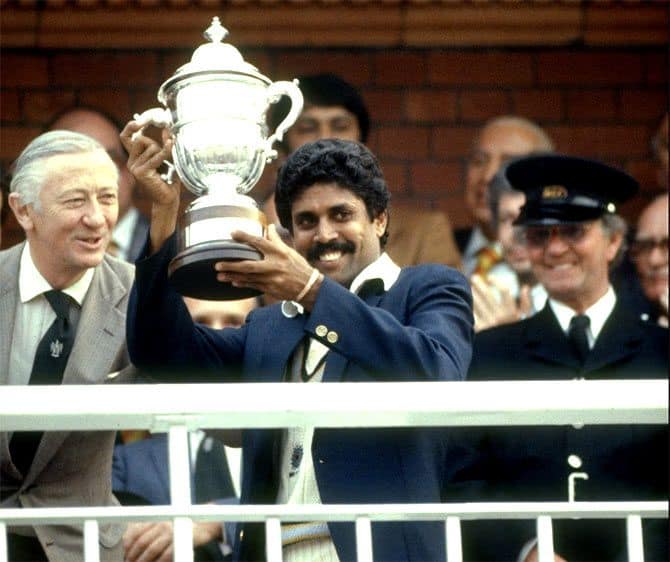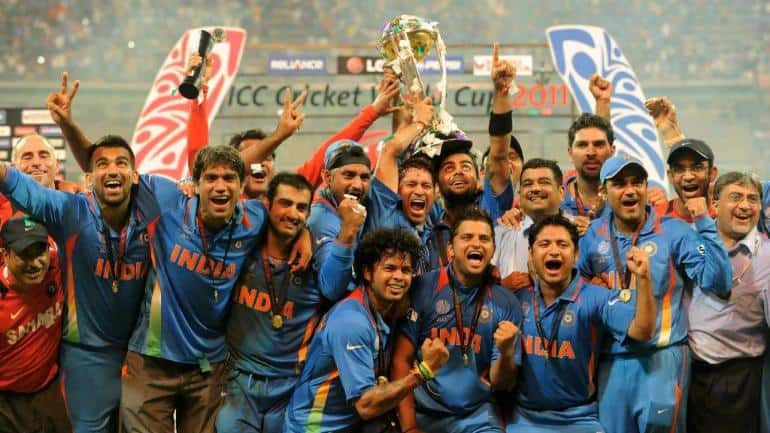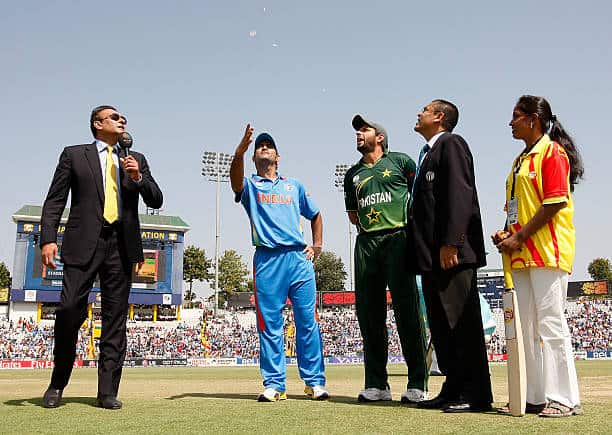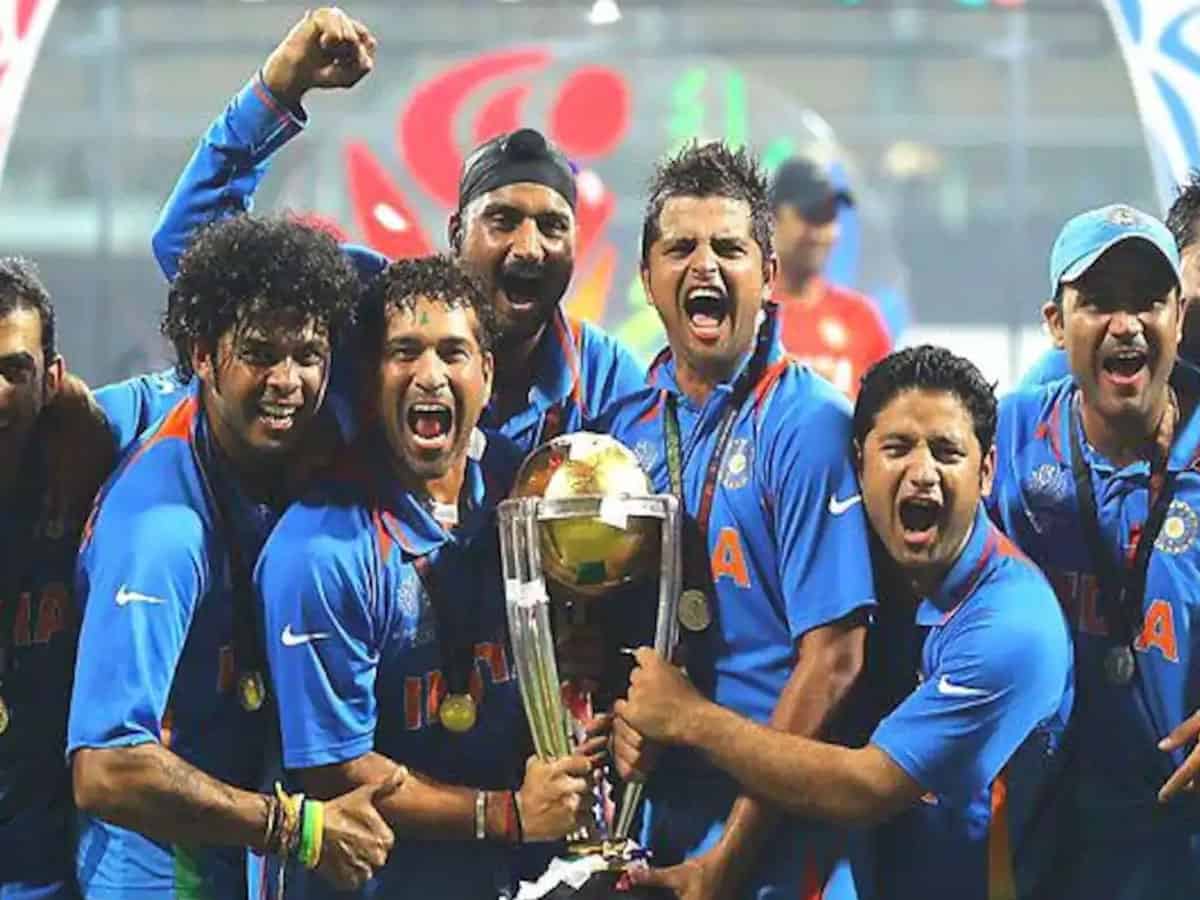It was exactly 10 years ago, on 2nd of April 2011that India lifted the prestigious ICC World Cup. It was for the second time in history that India stood on the pinnacle of world cricket. The joy that erupted across the nation and the blaze of colours and crackers with which Indians celebrated the victory had to be seen to be believed.
Outside the Wankhede stadium in Mumbai which was the venue for the final, the scene was chaotic when the match ended. Cars jammed the streets and the cacophony of blaring horns, bursting of crackers and thumping of drums made it clear to all eye witnesses that a historic win had been achieved by the Men in Blue as the Indian team is called.

After the fantastic victory in the Prudential World Cup in 1983 by Kapil’s Devils (as an English journalist named them), India had to wait 18 long years for the second victory. But it eventually came on that warm summer evening in Mumbai and the deeds achieved by Dhoni’s team also became etched in the cricket folklore of India.

The heroes of 2011 were Sachin Tendulkar, M.S. Dhoni, Munaf Patel, Gautam Gambhir, Harbhajan Singh, Virat Kohli, Yuvraj Singh, Suresh Raina and Zaheer Khan. They all chipped in when India needed their services and they kept India’s campaign on the right track.
The tournament was co-hosted by India, Sri Lanka and Bangladesh. Earlier, in 2007, the host nations which at that time had included Pakistan, had agreed on a revised format for the event. It was decided that there would be 14 teams in all. In the first phase of the tournament, there would be two groups of seven teams each.
Unfortunately, at a later stage, the matches which were to be hosted by Pakistan were reallocated to other centres because of security fears. This came about after an attack on Sri Lankan cricketers who were travelling in their team bus in Lahore in 2009.
Official song was sung in three languages
The official song of the tournament had three versions. It was sung in Hindi, Bengali and Sinhala to correspond with the three host countries. The Hindi version was titled “De Ghuma Ke” and was composed by the well-known trio of Shankar-Ehsan-Loy who are sometimes referred to as the Amar-Akbar-Anthony of the Hindi film music industry. Their song had a catchy tune which combined Indian rhythms with a touch of western rock. The official Mascot for the tournament was the caricature of a young elephant which was named “Stumpy”.
When the tournament got underway, India was placed in Group B. The other teams in Group B were South Africa, England, West Indies, Bangladesh, Ireland and the Netherlands. In Group A were Pakistan, Sri Lanka, Australia, New Zealand, Zimbabwe, Canada and Kenya. So on paper it looked like Group B was the slightly harder group where keener competition would be seen. But eventually India qualified for the quarter final as the number two team in its group.
Controversy about rule change
But the tournament also had its share of controversy. One such controversy erupted during the match between India and England. Ian Bell was given not out for a leg before appeal despite the fact that the ball hit the pads in line with the stumps. Dhoni referred the matter to the TV umpire who confirmed the decision since the point of contact was 2.5 metres from the stumps. At such a distance the reliability of the Hawk Eye system is not accepted as foolproof. But the rule was subsequently changed and Sri Lankan skipper Sangakkara complained about the rule change in the middle of the tournament.
In the quarter final, India scored a very important victory when it beat champions Australia by 5 wickets at Ahmedabad. A solid innings of 104 by Captain Ricky Ponting and a knock of 53 by Brad Haddin took Australia to a total of 260 for six. In reply India lost opener Virender Sehwag for only 15 but half-centuries by Sachin Tendulkar, Gautam Gambhir and Yuvraj Singh took India home quite easily.

In the semifinal India came up against next door neighbour Pakistan. This was a harder battle. But Sachin gave India a good start by scoring a solid 85 off 115 balls with eleven hits to the fence. Useful contributions came from Sehwag and Suresh Raina and enabled India to reach 260 for nine. For Pakistan there was an outstanding performance by left arm seamer Wahab Riaz who took five wickets for 46 runs. He checked India and prevented the host from reaching a higher total.
The Pakistan batting could never get going. Only Misbah-ul-Haq compiled a good half-century but the rest, including danger man Younis Khan, could not reach high scores. Pakistan lost by 29 runs and India was through to the final.
From the other half it was Sri Lanka which had reached the final after a series of impressive wins. It defeated England by 10 wickets in the quarter final and then beat New Zealand by 5 wickets in the semifinal. Its ace batsman Tillakaratne Dilshan was in great form and could be the game changer in the final.
But in the final Dilshan fell for a modest 33. It was Mahela Jayawardene who put the Indian bowling to the sword. He carved out an impressive 103 off 88 balls and remained unbeaten as Sri Lanka scored 274 for six. It was not a very high total but could be a challenge if Indians relaxed their vigil.
India began badly. Sehwag went without scoring and Sachin Tendulkar departed for 18. Two down with only 31 on the board.
But then came Gautam Gambhir and along with Virat Kohli, took India to 114 before Kohli was out. Next came skipper Dhoni and he was in no mood to capitulate. Gambhir and Dhoni took the score along to 223 before Gambhir departed. But thereafter there were no more hiccups. Dhoni and Yuvraj took India to a well-deserved six wicket victory.
Yuvraj Singh was adjudged Player of the Series. Sri Lanka’s Tilakaratne Dilshan was the highest scorer of the tournament with 500 runs and Sachin Tendulkar was number two with 482. Among the bowlers Shahid Afridi was the most successful with a haul of 21 wickets from 8 matches along with India’s Zaheer Khan who also had 21 but from 9 matches.
Abhijit Sen Gupta is a seasoned journalist who writes on Sports and various other subjects.


